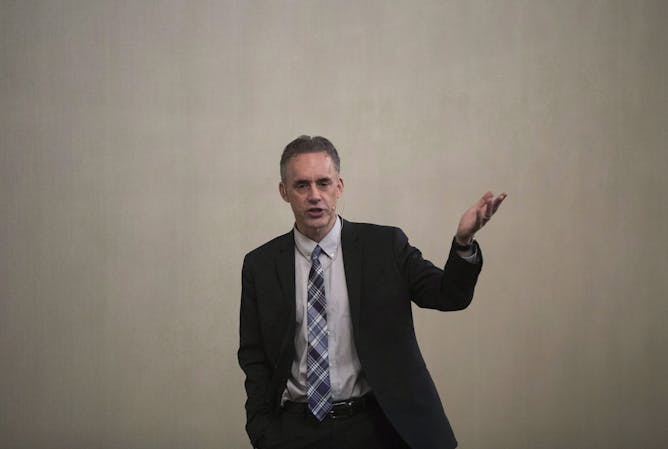|
Would an academic work that makes a case for genocide be fair game for publication, or is it beyond the ethical bounds of legitimate scholarly debate? In a fascinating piece in today’s The Conversation Canada, Reuben Rose-Redwood of the University of Victoria explains how he pitched a hoax essay to various scholarly journals making the case for genocide – and was surprised to see the rejections had little to do with ethics.
We also have a compelling piece from Matthew Sears of the University of New Brunswick comparing Jordan Peterson’s recent litigiousness to the classical Athenian Cleon. Like the thin-skinned Cleon, Sears argues, “Peterson just looks like a hypocrite, claiming to be free speech’s champion while stifling the free speech of others.”
Finally, the federal government recently launched public consultations on digital and data transformation. But Blayne Haggart of Brock University and Natasha Tusikov of York University argue that the scope of the consultations is far too narrow.
We hope you all enjoyed your Canada Day weekend! We'll have lots of great reads for you this week, whether you're back at work or reading from the cottage dock.
|

Debates over the history of colonialism have sparked controversies on university campuses in recent years, as illustrated by the removal of a statue honoring Cecil Rhodes at the University of Cape Town in 2015.
Desmond Bowles
Reuben Rose-Redwood, University of Victoria
Would an academic work that makes a case for genocide be fair game for publication, or is it beyond the ethical bounds of legitimate scholarly debate?
|

Jordan Peterson speaks to a crowd during a stop in Sherwood Park, Alta., in February 2018. Peterson is suing an Ontario university and three of its staff for defamation.
THE CANADIAN PRESS/Jason Franson
Matthew A. Sears, University of New Brunswick
Jordan Peterson's lawsuit against Laurier is hardly the action of a free speech advocate. Here's how he resembles Cleon on ancient Greece.
|

The transformative nature of our move to a data-driven economy and society means that any data strategy will have long-lasting effects. That’s why the Canadian government needs to ask the right questions to the right people in its ongoing national consultations.
(Shutterstock)
Blayne Haggart, Brock University; Natasha Tusikov, York University, Canada
The Canadian government is right to hold public consultations on digital and data transformation given how profoundly it affects society at large. But the scope is far too narrow.
|
Politics
|
-
Luis Gómez Romero, University of Wollongong
Leftist Andrés Manuel López Obrador, a former Mexico City mayor and career outsider, won Mexico's July 1 presidential election in a landslide. The US-Mexico relationship is about to change.
|
|
Business + Economy
|
-
Louise Grimmer, University of Tasmania; Gary Mortimer, Queensland University of Technology
As major supermarkets 'ban the bag', the spotlight is firmly on sustainability. Retailers are racing to promote their green credentials to shoppers.
|
|
Culture + Society
|
-
Gabriel Moreno Esparza, Northumbria University, Newcastle
The power of the mainstream media to put pressure US government policy should not be underrated.
|
|